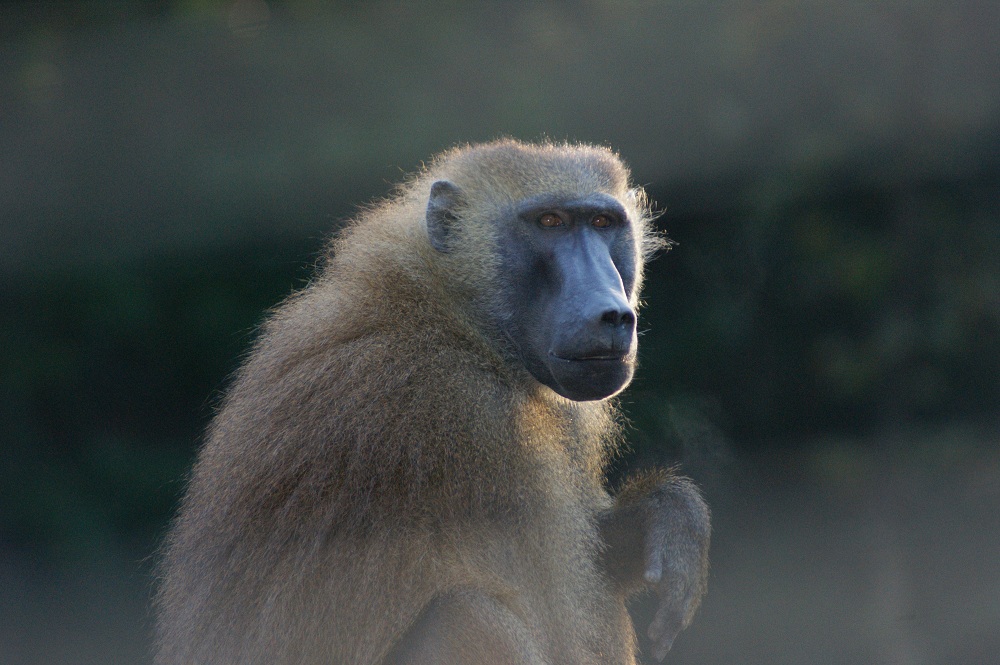Low Ranking Baboons Have Bad Immune Systems

Get the world’s most fascinating discoveries delivered straight to your inbox.
You are now subscribed
Your newsletter sign-up was successful
Want to add more newsletters?

Delivered Daily
Daily Newsletter
Sign up for the latest discoveries, groundbreaking research and fascinating breakthroughs that impact you and the wider world direct to your inbox.

Once a week
Life's Little Mysteries
Feed your curiosity with an exclusive mystery every week, solved with science and delivered direct to your inbox before it's seen anywhere else.

Once a week
How It Works
Sign up to our free science & technology newsletter for your weekly fix of fascinating articles, quick quizzes, amazing images, and more

Delivered daily
Space.com Newsletter
Breaking space news, the latest updates on rocket launches, skywatching events and more!

Once a month
Watch This Space
Sign up to our monthly entertainment newsletter to keep up with all our coverage of the latest sci-fi and space movies, tv shows, games and books.

Once a week
Night Sky This Week
Discover this week's must-see night sky events, moon phases, and stunning astrophotos. Sign up for our skywatching newsletter and explore the universe with us!
Join the club
Get full access to premium articles, exclusive features and a growing list of member rewards.
Having a low social rank can have a bad impact on the immune system, new research suggests. Low ranking baboons had more trouble healing their wounds and fighting off infections.
On the other hand, high-ranking male baboons recover more quickly from injuries and are less likely to become ill than other males.
"In humans and animals, it has always been a big debate whether the stress of being on top is better or worse than the stress of being on the bottom," study researcher Beth Archie, of the University of Notre Dame, said in a statement. "Our results suggest that, while animals in both positions experience stress, several factors that go along with high rank might serve to protect males from the negative effects of stress."
The study was published today, May 21, in the journal Proceedings of the National Academy of Sciences.
The researchers examined 27 years of health records from the Amboseli Baboon Research Project in Kenya. They found that high rank is associated with faster wound healing. The finding is somewhat surprising, given that top-ranked males also experience high stress, which should suppress immune responses. They also found that social status is a better predictor of wound healing than age.
"The power of this study is in identifying the biological mechanisms that may confer health benefits to high-ranking members of society," George Gilchrist, program director in the National Science Foundation, said in a statement. "We know that humans have such benefits, but it took meticulous long-term research on baboon society to tease out the specific mechanisms."
The research team investigated how differences in age, physical condition, stress, reproductive effort and testosterone levels contribute to status-related differences in immune functions.
Get the world’s most fascinating discoveries delivered straight to your inbox.
The researchers found that high-ranking males were less likely to become ill and recovered faster from injuries and illnesses than low-ranking males. The authors suggest that chronic stress, old age and poor physical condition associated with low rank may suppress immune function in low-ranking males.
"The complex interplay among social context, physiology and immune system-mediated health costs and benefits illustrates the power of interdisciplinary research," Carolyn Ehardt, also of the National Science Foundation, said in a statement. "This research begins to tease apart the trade-offs in both high and low status in primates, including ourselves, which may lead to understanding the effects of social status on death and disease — not inconsequential for society as a whole."
 Live Science Plus
Live Science Plus











